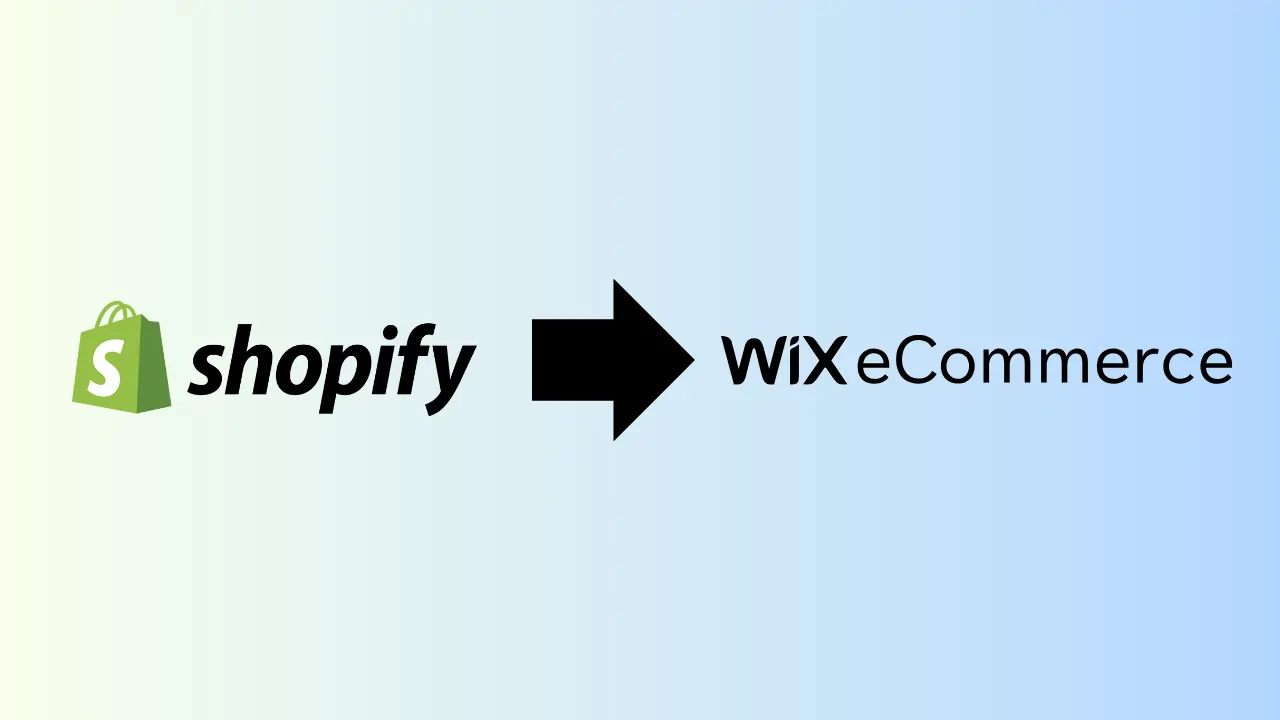B2B SaaS Meaning: A Business-to-Business Software
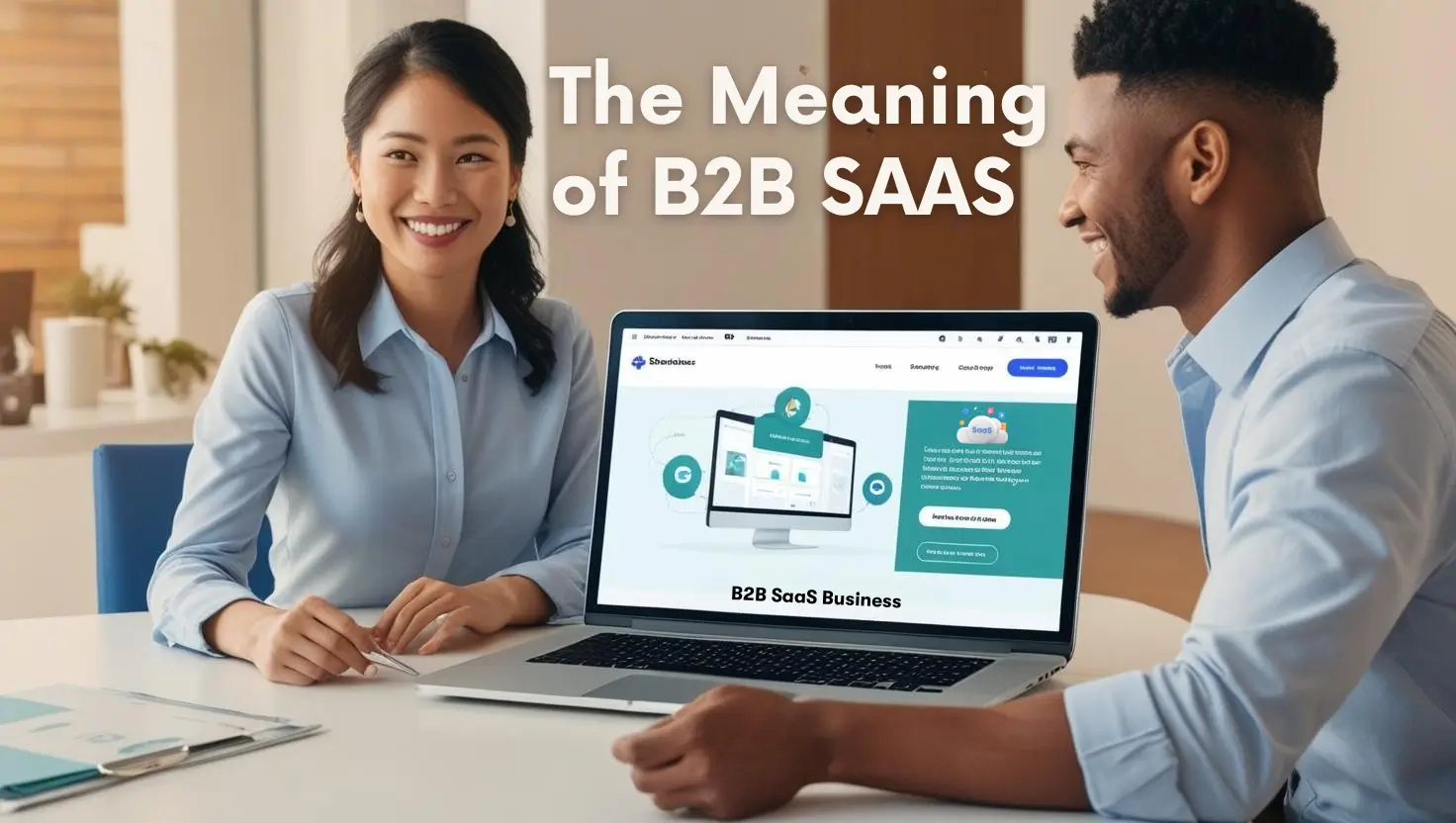
Businesses rely on cloud-based solutions to optimize operations, enhance efficiency, and drive growth. B2B SaaS (Business-to-Business Software as a Service) is one of the most significant advancements in this field. But what exactly does it mean, and how does it impact modern enterprises?
B2B SaaS tools help businesses manage and reduce customer acquisition cost by providing insights into marketing effectiveness and customer profitability. This guide explores the B2B SaaS meaning, its functionality, benefits, and examples of leading B2B SaaS companies and products.
Definition and Meaning
What is B2B?
B2B, or Business-to-Business, refers to transactions conducted between businesses rather than between a business and individual consumers. In the world of B2B SaaS, software solutions are made for companies. They help businesses streamline operations, boost productivity, and improve efficiency.
B2B solutions address organizational needs, offering tools for complex business processes, unlike B2C models aimed at individual consumers.
What is SaaS?
SaaS, or Software as a Service, is a software distribution model where applications are hosted by a service provider and made available to customers over the Internet.
This model eliminates the need for businesses to install, host, or maintain software on their local servers or computers. Instead, they can access the software solutions through a web browser, allowing for greater flexibility and ease of use.
SaaS platforms are typically subscription-based, allowing businesses to scale their usage according to their needs and budget. This model also ensures that companies always have access to the latest features and updates.
Combining the Concepts: B2B SaaS Meaning
B2B SaaS mixes Business-to-Business (B2B) and Software as a Service (SaaS). It provides software solutions for businesses.
This software is available online. Businesses can use it without installing anything on their computers or servers.
This model is cost-effective, easy to scale, and accessible from anywhere. It helps businesses improve operations, save money, and stay up to date with the latest technology and security features.
What is B2B SaaS?
B2B SaaS refers to cloud-based applications that businesses use to streamline operations, improve productivity, and manage processes efficiently. Unlike B2C SaaS, which targets individual consumers, B2B SaaS products cater specifically to organizations.
B2B SaaS solutions are hosted in the cloud and offered via a subscription model, eliminating the need for on-premise installations. Companies use these services for various functions, including customer relationship management (CRM), human resources, finance, and marketing automation. These solutions can manage customer interactions through CRM platforms, enhancing customer relationship management. Additionally, B2B SaaS can include enterprise resource planning (ERP) systems to integrate and streamline various business processes.
How B2B SaaS Works
B2B SaaS operates on a cloud infrastructure, allowing businesses to access software solutions through web-based applications. B2B SaaS platforms are cloud-based solutions that offer a range of tools for different business needs. Key characteristics include:
- Subscription-Based Model – Companies pay a recurring fee instead of purchasing licenses outright.
- Scalability – SaaS platforms can expand as a business grows, adjusting resources accordingly.
- Integration – B2B SaaS solutions often integrate seamlessly with other business applications.
- Data Security – Cloud-based services include advanced security protocols and compliance measures.
- Continuous Updates – SaaS companies provide automatic updates and feature enhancements.
Common B2B SaaS categories include:
- CRM (Customer Relationship Management)
- Project Management tools
- Project Management Software
- Marketing Automation
- HR & Payroll
- E-commerce Platforms
What is The Difference Between B2B and B2C SaaS?
While both B2B SaaS and B2C SaaS operate on a cloud-based subscription model. They serve distinct audiences and have key differences. Below is a comparison table highlighting the main distinctions:
| Feature | B2B SaaS | B2C SaaS |
| Target Audience | Businesses, corporations, enterprises | Individual consumers, small-scale users |
| Complexity of Features | Advanced integrations (CRM, ERP, automation) | Simpler, user-friendly functionalities |
| Sales & Marketing Strategy | Longer sales cycles, multiple decision-makers, demos | Shorter sales cycles, direct-to-consumer marketing |
| Customer Support & Onboarding | Dedicated account management, personalized onboarding | Self-service onboarding, tutorials, community support |
| Pricing Models | Enterprise-level pricing, tiered subscriptions, long-term contracts | Flat-rate subscriptions, freemium models with upgrades |
| Customer Retention Focus | Long-term relationships, renewals, evolving product development | High-volume acquisition, brand loyalty programs |
Key Takeaways
- B2B SaaS is designed for businesses, often requiring extensive integrations and personalized support.
- B2C SaaS targets individual consumers, prioritizing user experience and easy adoption.
- Sales and marketing strategies With B2B SaaS, relationship-building and B2C are required, focusing on high volume, quick conversions.
Related Articles
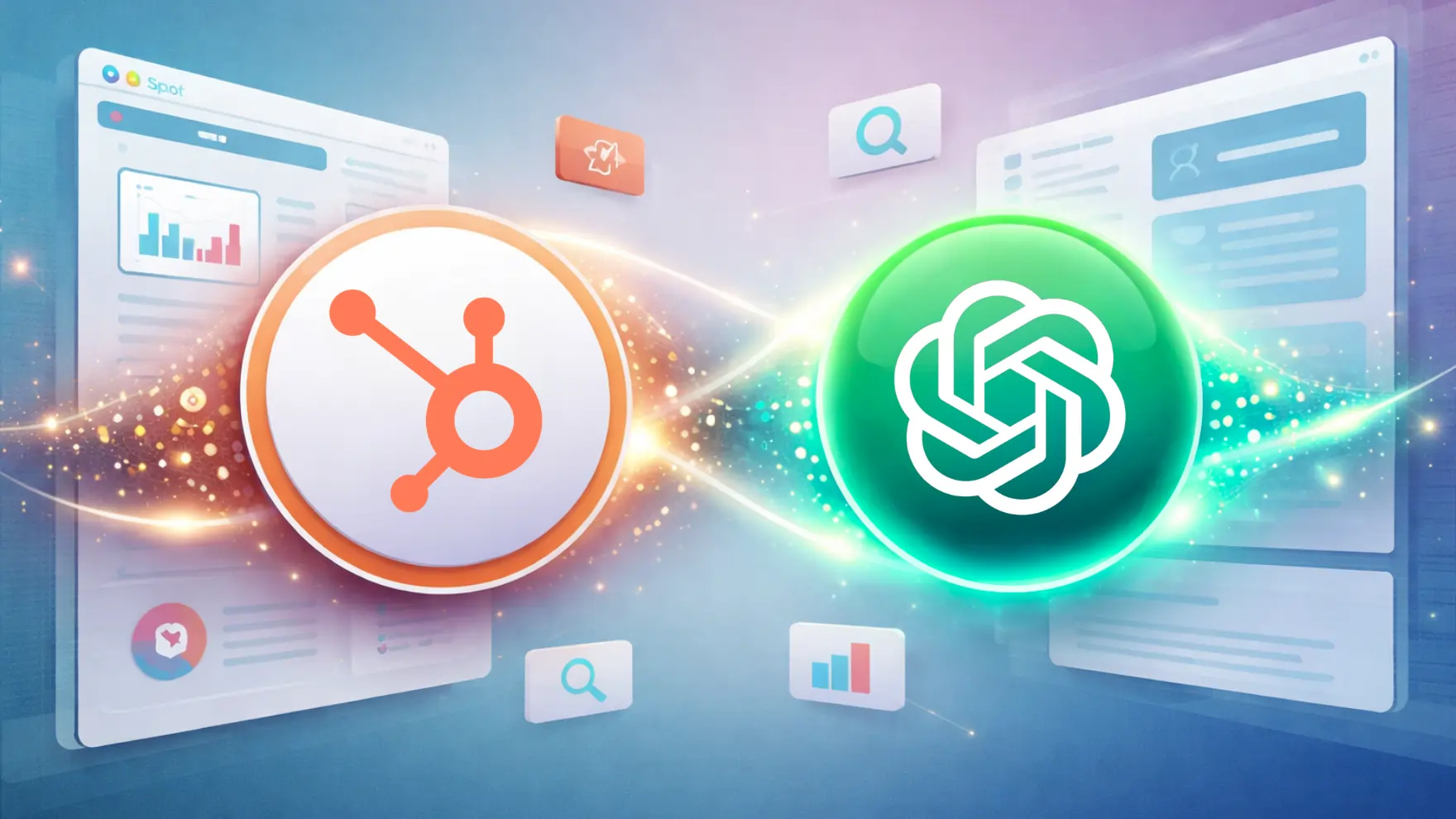
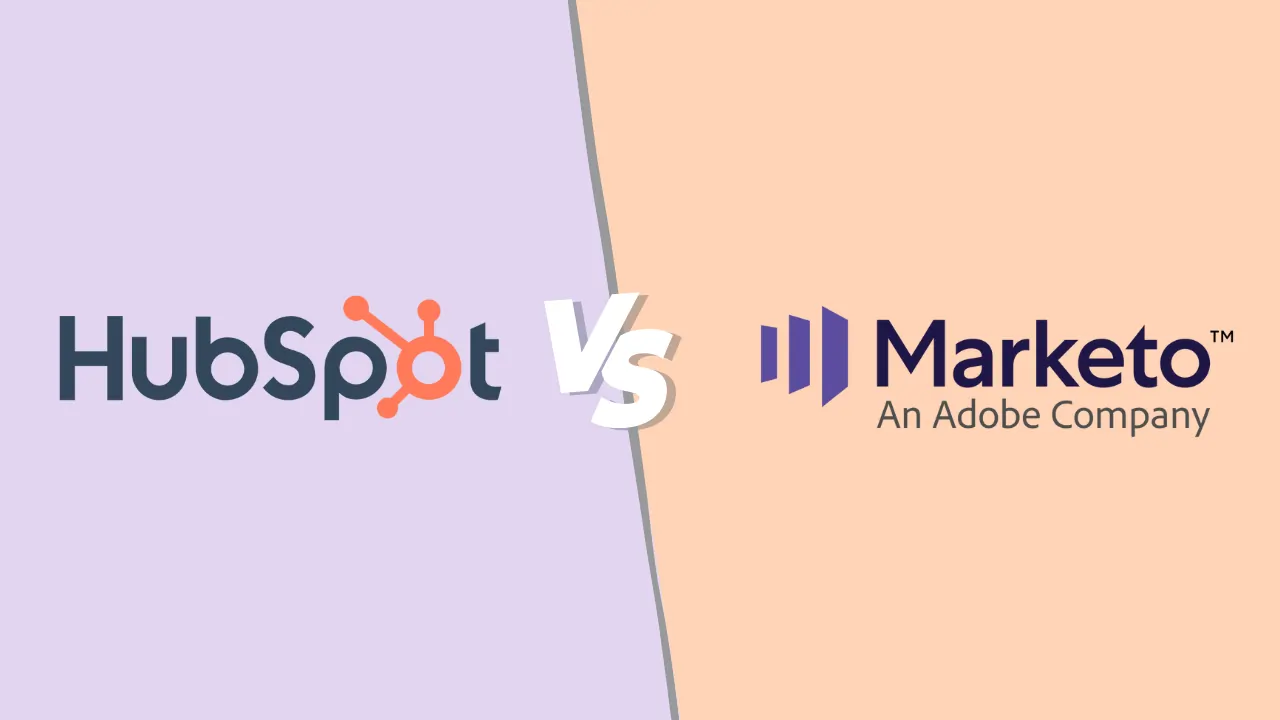
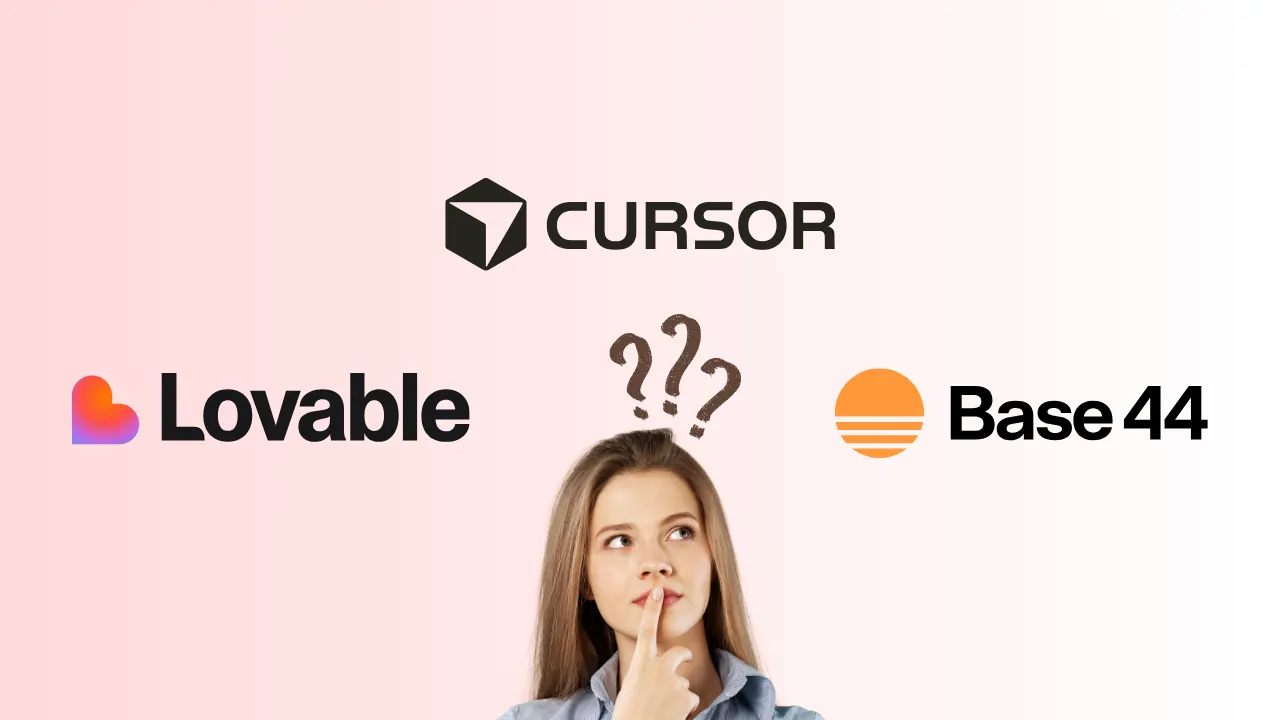

Benefits of B2B SaaS for Businesses
1. Cost-Effectiveness
B2B SaaS eliminates the need for expensive hardware and IT maintenance costs. Businesses only pay for the features they use, making it a budget-friendly option.
2. Scalability
Cloud-based services allow teams to access data and applications from anywhere with an internet connection, promoting remote collaboration.
4. Integration with Other Tools
B2B SaaS software can seamlessly integrate with CRM, ERP, marketing tools, and analytics platforms, enhancing workflow efficiency. Enterprise software companies provide comprehensive SaaS solutions that integrate seamlessly with other business applications. Selecting the right SaaS solution involves assessing business needs and evaluating integration capabilities.
5. Continuous Improvements
Unlike traditional software, SaaS providers update their platforms regularly, ensuring that businesses always have access to the latest features and security features.
B2B SaaS: Pros & Cons
✅ Pros:
- Higher Revenue Potential – Businesses often have bigger budgets, leading to higher-priced subscriptions.
- Longer Customer Lifespan – Companies tend to stick with software longer if it integrates into their workflow.
- More Predictable Revenue – With long-term contracts, churn rates are typically lower than in B2C.
- Scalability & Growth Opportunities – Large enterprises may upgrade to higher-tier plans or request additional services.
❌ Cons:
- Longer Sales Cycle – Businesses take time to evaluate and adopt new software.
- Higher Customer Support Needs – Clients require onboarding, integration help, and ongoing support.
- Marketing Complexity – Requires targeted outreach, relationship-building, and educational content marketing.
Who Should Start a B2B SaaS?
- If you have industry knowledge in a specific niche (e.g., finance, healthcare, or HR).
- If you prefer long-term contracts over a high volume of small transactions.
- If you are comfortable with enterprise sales and relationship management.
Examples of Top B2B SaaS Companies
1. Pipedrive – A Sales-Focused CRM for SMBs
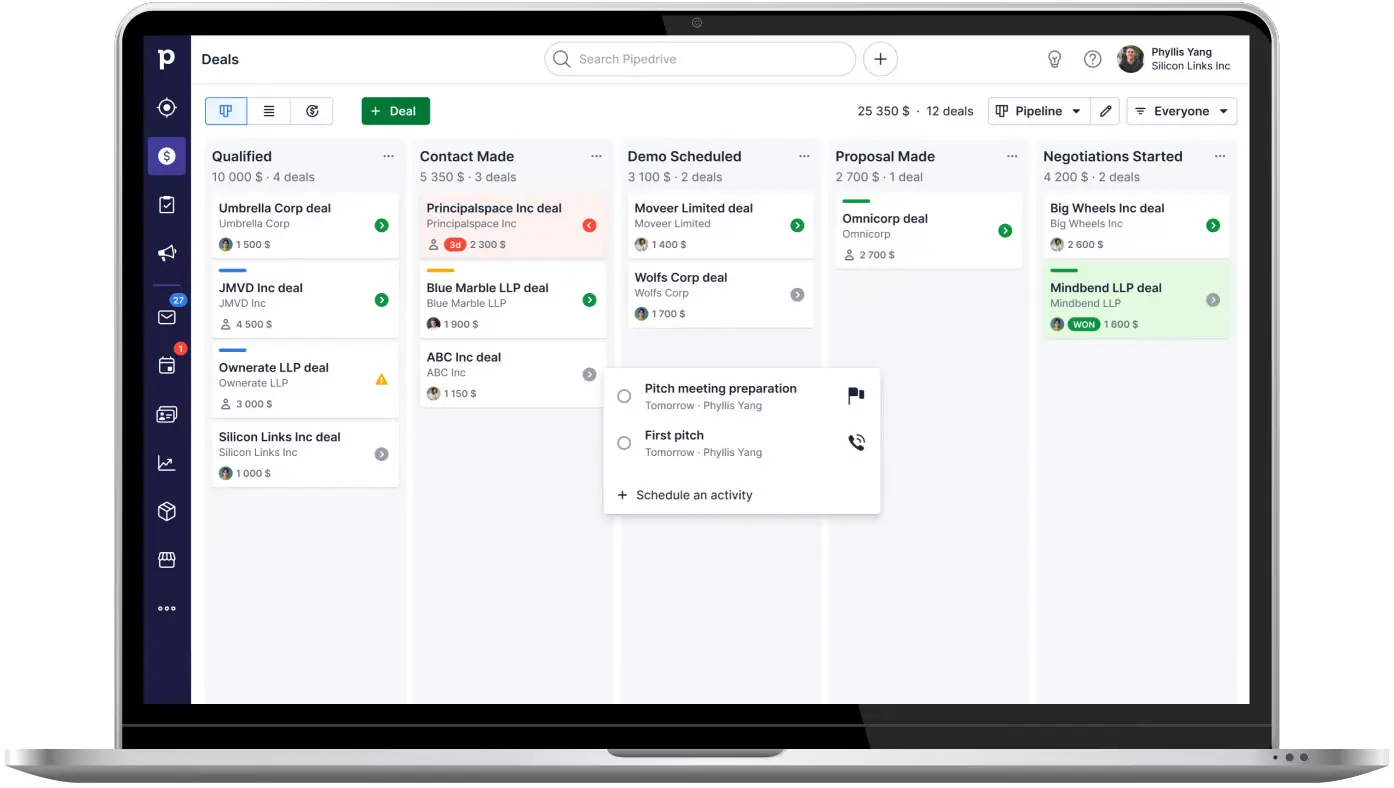
SaaS Business Model:
- Subscription-based pricing (monthly or annual plans).
- Offers different tiers (Essential, Advanced, Professional, Enterprise).
- Revenue comes from users paying for CRM access, automation tools, and integrations.
Key Features:
✅ Pipeline Management – Drag-and-drop sales pipeline visualization.
✅ Lead & Deal Management – Centralized lead tracking and contact history.
✅ Automation & Workflow – Automate repetitive sales tasks and email sequences.
✅ Integration with Other Tools – Connects with Gmail, Outlook, Zapier, Slack, and more.
✅ Reporting & Insights – Advanced sales forecasting and performance tracking.
✅ Mobile App – On-the-go access for sales teams.
Pipedrive is an ideal cloud-based software for small to medium-sized businesses looking for an easy-to-use, automation-driven CRM that enhances sales tracking and pipeline visibility.
2. Monday.com – A Flexible Work Management Platform
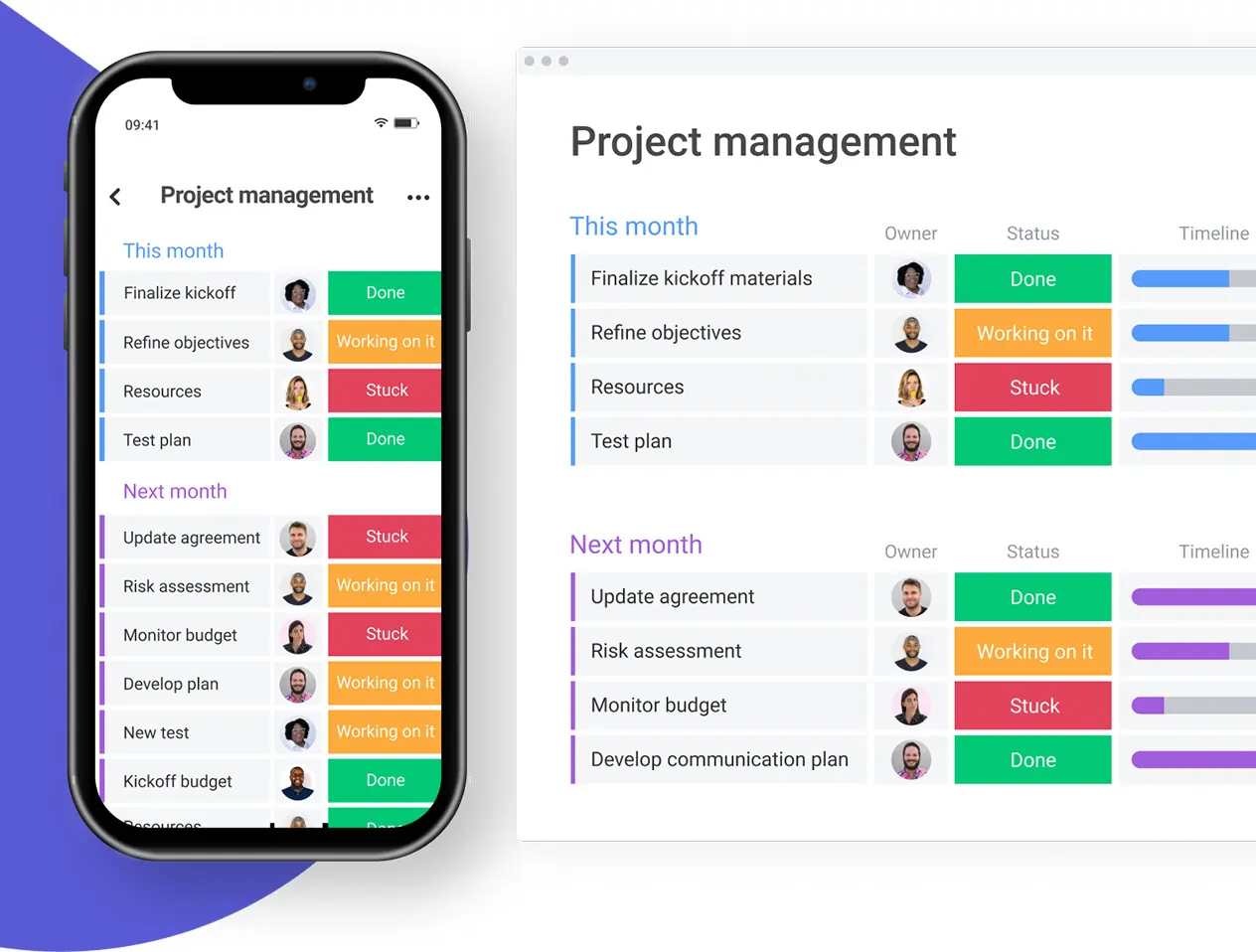
SaaS Business Model:
- Subscription-based SaaS model with multiple pricing plans (Basic, Standard, Pro, Enterprise).
- Uses a per-user, per-month pricing structure.
- Revenue comes from team collaboration features, integrations, and automation capabilities.
Key Features:
✅ Customizable Workflows – Teams can build workflows for project management, HR, marketing, and operations.
✅ Task & Project Tracking – Kanban, Gantt charts, and timeline views.
✅ Automation & Integrations – Connects with Slack, Microsoft Teams, Zapier, Google Drive, and Jira.
✅ Collaboration Tools – Real-time updates, file sharing, and team communication.
✅ Time Tracking & Reporting – Helps teams monitor productivity and workload balance.
✅ Security & Compliance – Includes two-factor authentication, ISO/IEC compliance, and enterprise-grade security.
Monday.com caters to businesses of all sizes, offering a no-code, highly customizable platform for managing different workflows and projects.
3. BambooHR – A Human Resource Management System (HRMS) for SMBs
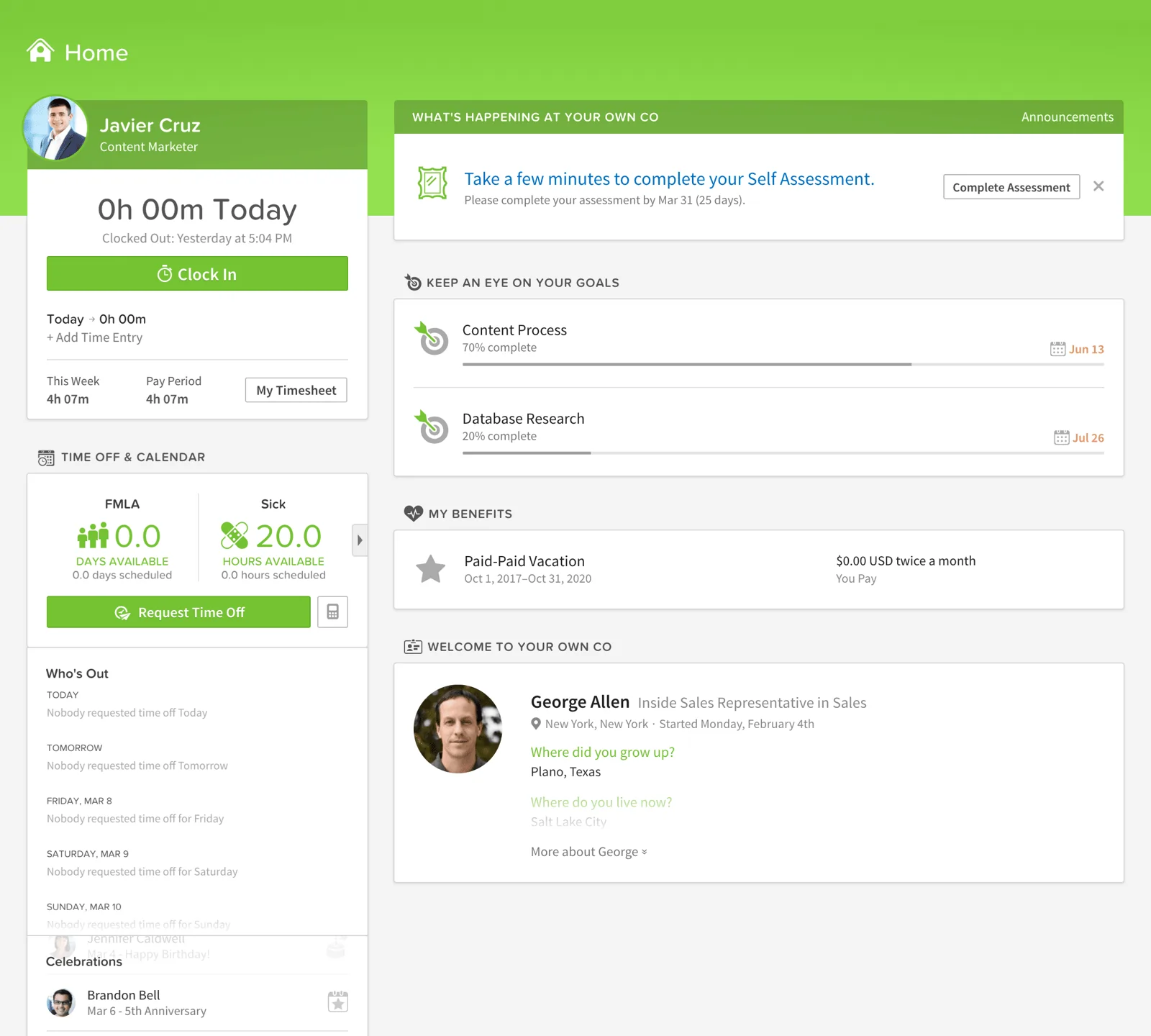
SaaS Business Model:
- Subscription-based HR software with tiered pricing (Essentials & Advantage plans).
- Charges per employee, per month.
- Revenue comes from HR features, payroll integration, and premium support services.
Key Features:
✅ Employee Database & Records – Centralized HR information management.
✅ Payroll Processing – Integrated payroll features for automated salary payments.
✅ Time Tracking & PTO Management – Tracks employee working hours, leave requests, and attendance.
✅ Performance Management – Customizable employee performance reviews and goal setting.
✅ Recruiting & Applicant Tracking (ATS) – Automates the hiring process from job postings to interviews.
✅ Employee Self-Service Portal – Employees can access pay stubs, request leaves, and update personal details.
BambooHR is best for SMBs looking for an all-in-one HRMS with easy onboarding, payroll, and employee tracking capabilities.
4. SEMrush – A Digital Marketing Tool for SEO, PPC, and Competitor Analysis
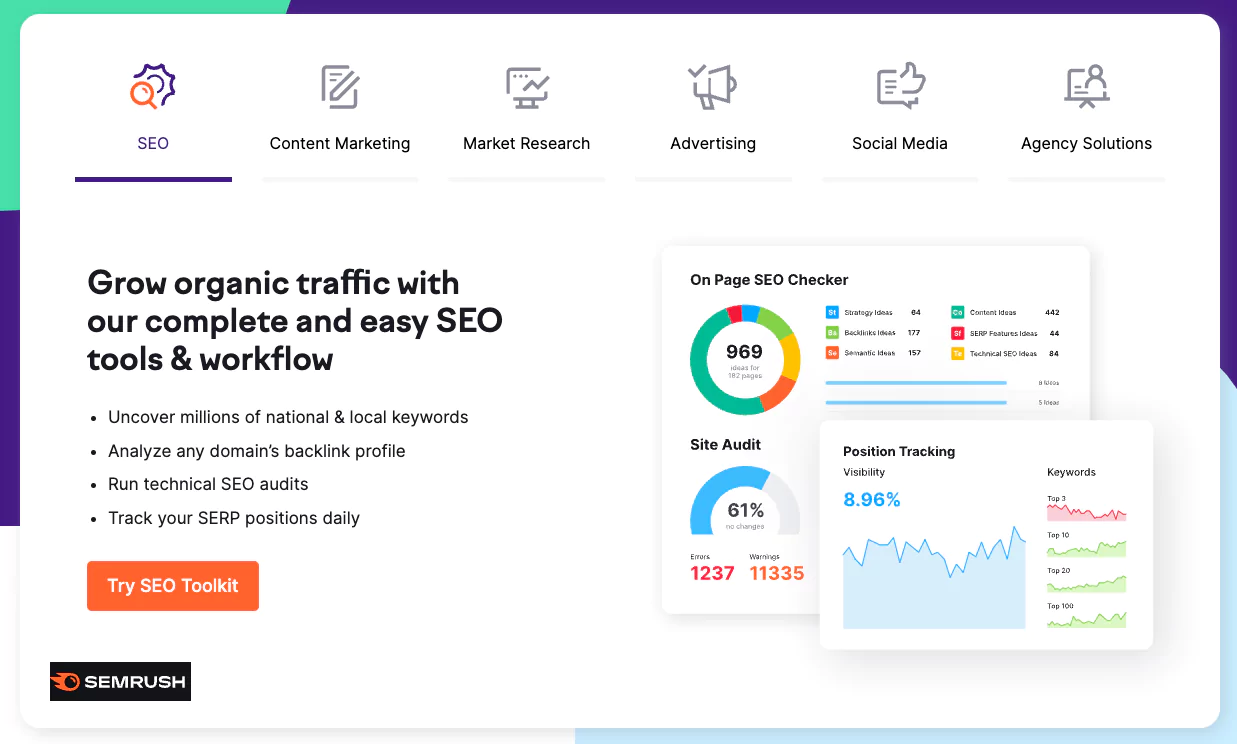
SaaS Business Model:
- Subscription-based pricing (Pro, Guru, Business plans).
- Offers custom enterprise solutions for large agencies.
- Revenue comes from SEO tools, competitor analysis, and API access for digital marketing agencies.
Key Features:
✅ SEO & Keyword Research – Helps businesses find high-ranking keywords and optimize content.
✅ Competitor Analysis – Insights into competitor traffic, backlinks, and marketing strategies.
✅ PPC & Advertising – Google Ads tracking, display advertising tools, and CPC analysis.
✅ Content Marketing Toolkit – AI-driven recommendations for content optimization.
✅ Social Media Management – Post scheduling, analytics, and audience engagement tracking.
✅ Backlink Analysis & Auditing – Identifies toxic backlinks and helps improve domain authority.
SEMrush is widely used by SEO professionals, digital marketers, and agencies for improving search rankings and online visibility.
5. Zoom – A Widely Used Video Conferencing & Online Meeting Software

SaaS Business Model:
- Freemium model with free basic plans and subscription-based premium tiers (Pro, Business, Enterprise).
- Revenue comes from paid plans with higher meeting duration, participant limits, and enterprise security.
Key Features:
✅ HD Video Conferencing – Secure, high-quality video and audio communication.
✅ Webinars & Virtual Events – Large-scale online meetings and marketing events.
✅ Cloud Recording & Transcription – Stores meeting recordings with AI-powered transcripts.
✅ Screen Sharing & Collaboration – Remote teams can share screens, co-annotate, and collaborate.
✅ Breakout Rooms – Splits meetings into smaller discussion groups for better engagement.
✅ End-to-End Encryption – Enterprise-grade security for sensitive business discussions.
Zoom is widely used across industries for remote meetings, corporate training, webinars, and hybrid work environments.
6. Shopify – An Enterprise E-Commerce Solution for Large Businesses
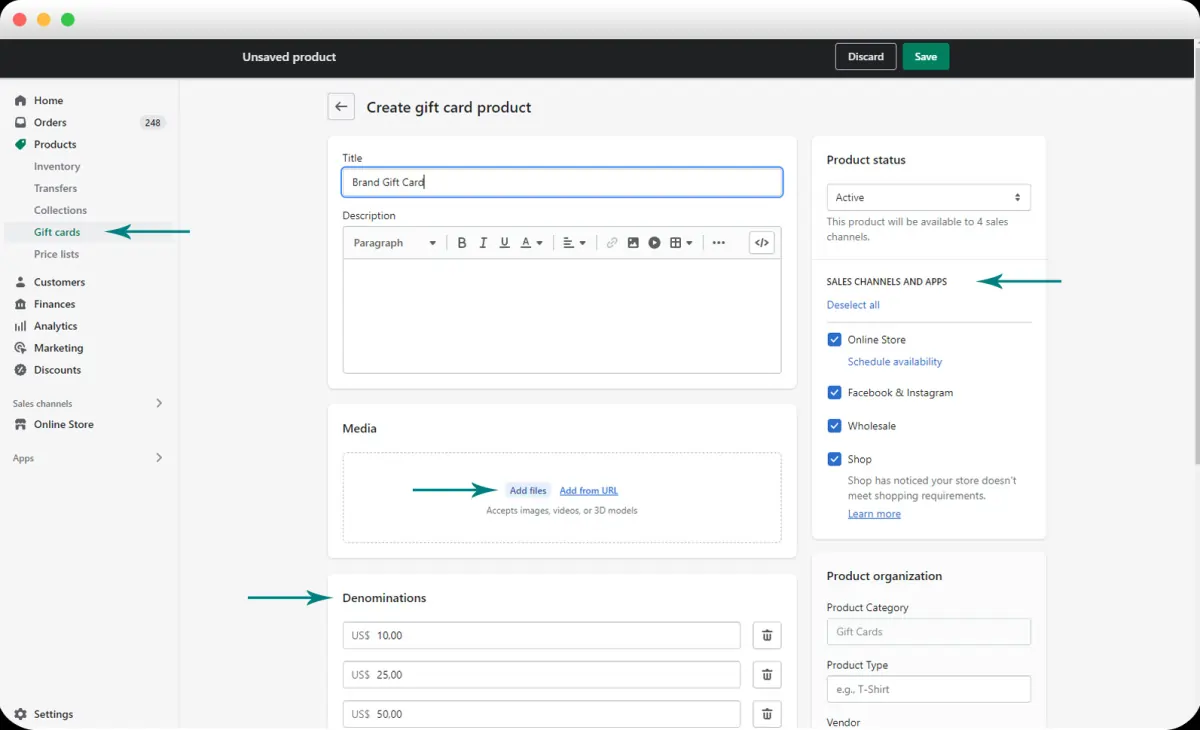
SaaS Business Model:
- Subscription-based pricing with Shopify Plus starting at $2,000 per month.
- Revenue comes from monthly plans, transaction fees, and app marketplace sales.
- Provides enterprise-level support and customization for large-scale e-commerce brands.
Key Features:
✅ Customizable Online Store – Drag-and-drop builder with customizable themes and branding.
✅ Multi-Channel Selling – Sell across Amazon, Facebook, Instagram, and TikTok.
✅ Scalability & Performance – Optimized for high-traffic e-commerce brands.
✅ Advanced Analytics & Reporting – AI-driven insights for sales tracking and customer behavior.
✅ Automated Workflows – Custom scripts, Shopify Flow, and advanced discount logic.
✅ Integrated Payment Processing – Shopify Payments, third-party gateways, and fraud prevention.
Shopify Plus is designed for enterprise-level businesses looking for high scalability, global expansion, and a seamless omnichannel shopping experience.
These companies have revolutionized industries by providing cutting-edge business-to-business software that enhances productivity and efficiency.
How to Start a B2B SaaS Company
1. Market Research
Identify gaps in the market and develop a product that addresses specific business needs. Research competitor offerings to differentiate your solution.
2. Product Development
Build a cloud-based B2B SaaS product with a user-friendly interface, strong security measures, and high scalability.
3. Pricing Strategy
Consider different pricing models such as:
- Freemium: Basic version for free, with paid premium features.
- Subscription-Based: Monthly or annual fees based on usage.
- Enterprise Pricing: Custom quotes for large organizations.
4. Marketing & Customer Acquisition
Leverage SEO, content marketing, PPC advertising, and social media to attract businesses. B2B SaaS platforms can streamline and optimize marketing efforts through automation. Focus on thought leadership and case studies to establish credibility. Social media marketing is crucial for engaging with potential B2B clients and enhancing brand awareness.
5. Customer Retention & Support
Ensure smooth onboarding, responsive customer service, and proactive communication to maintain long-term relationships with clients. Effective financial management through SaaS platforms can enhance customer retention by ensuring smooth invoicing, payroll, and budgeting processes.
Challenges in B2B SaaS companies
Despite its numerous advantages, the B2B SaaS industry faces several challenges that companies must navigate to remain competitive.
1. Customer Acquisition and Retention
Attracting and retaining customers is a significant challenge in a highly competitive market. To build strong relationships, B2B SaaS companies must invest heavily in marketing, customer support, and onboarding processes.
2. High Customer Expectations
Businesses demand reliable, secure, and scalable software solutions. Any downtime, security breach, or inefficiency can lead to customer dissatisfaction and loss of revenue.
3. Integration Complexity
Many businesses already use multiple software solutions, making seamless integration a critical factor. Ensuring compatibility with existing tools and workflows can be complex and resource-intensive.
4. Security and Compliance
To protect sensitive business data, B2B SaaS companies must adhere to stringent security and compliance standards, such as GDPR and HIPAA. Meeting these requirements demands continuous investment in cybersecurity.
5. Pricing Pressure and Competition
The SaaS market is saturated with competitors offering similar services. Companies must find the right balance between competitive pricing and maintaining profitability while delivering high-quality products.
6. Churn Rate Management
Customer churn is a major concern for B2B SaaS businesses. Ensuring continued engagement through excellent customer service, product innovation, and flexible pricing models is essential to reduce churn rates.
The Future of B2B SaaS
The B2B SaaS industry is evolving rapidly, with trends shaping its future:
- AI & Automation: Intelligent analytics and machine learning integrations.
- Enhanced Cybersecurity: Advanced encryption and data protection measures.
- Vertical SaaS: Industry-specific solutions tailored to niche markets.
- Global Expansion: Growing adoption in emerging markets.
As businesses continue to digitalize operations, B2B SaaS companies will play a crucial role in driving innovation and efficiency.
Final Thoughts
B2B SaaS extends beyond cloud-based software; it represents a transformative approach to business efficiency. Most B2B SaaS companies offer innovative products, enabling organizations to optimize operations, scale rapidly, and stay competitive.
For businesses looking to adopt business-to-business software, the future is promising. The right SaaS company can provide the tools necessary to thrive in the digital age. Whether you’re a user exploring SaaS solutions or an entrepreneur launching a B2B SaaS company, the opportunities in this space are vast and continually expanding.
